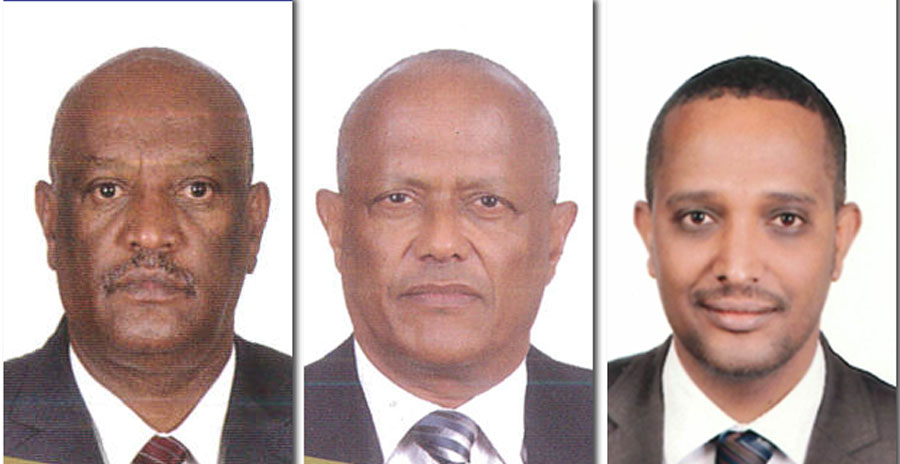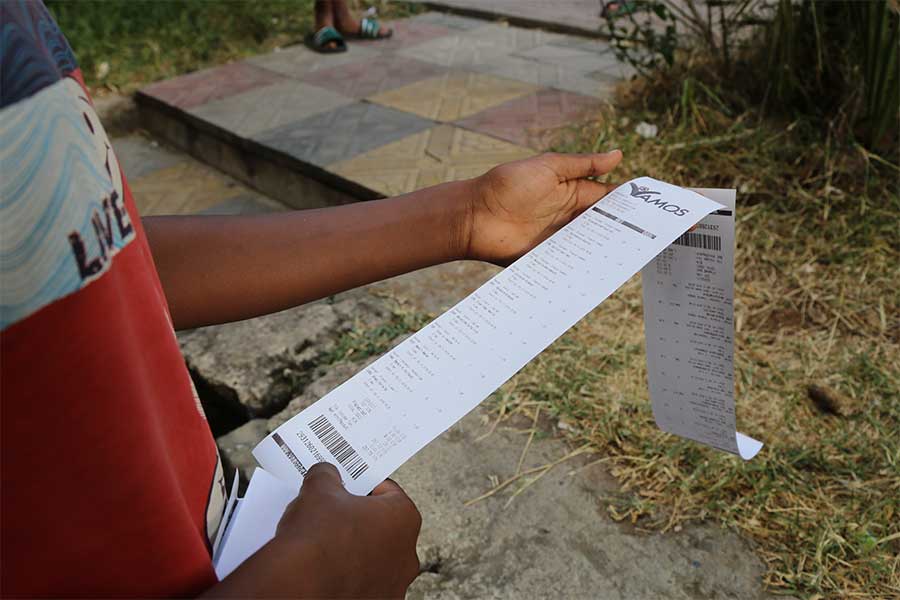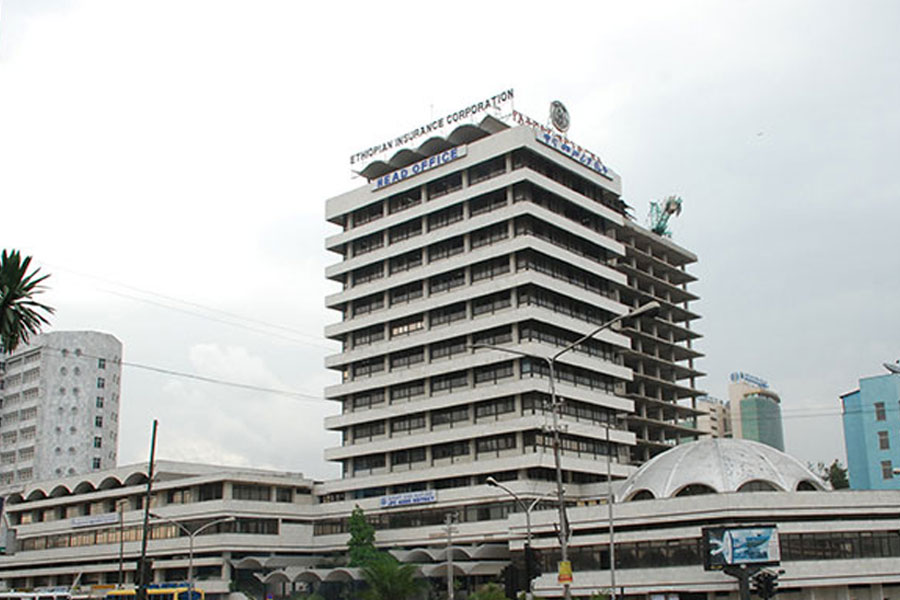
Jul 9 , 2022
By TSION HAILEMICHAEL ( FORTUNE STAFF WRITER )
The taxman in the Amhara Regional State has granted waivers to tens of thousands of small businesses affected by the civil war in the north resulting in deaths, displacements, and damaged public infrastructure.
Tsega Tibebu (PhD), head of the Amhara Revenues Bureau, allowed nearly 300,000 taxpayers in category ‘C’ to deduct the days their businesses had been closed due to the war when filing taxes. Businesses with less than half a million Birr in annual turnover fall under Category ‘C’. They pay tax based on the presumptive valuation method, as they are not required to keep accounts of their income.
Last week, Tsega notified six of the Bureau’s branch offices to make adjustments to accommodate taxpayers’ pleas. The regional state may forego close to 3.75 billion Br it has collected from taxpayers under Category 'C', representing 18pc of the tax it mobilised last year. It receives 44.5 billion Br in subsidies from the federal government.
“The intention is to provide relief to small businesses that have sustained heavy losses,” Tsega told Fortune.
Tax reform committees established in six of the 11 zones in the Regional State are tasked with determining the admissibility of taxpayers’ evidence. Waivers will not be available to small businesses in zones that were not directly affected by the war. The war last year caused severe damage to large areas of Gonder, Wello and Showa.
However, the severity of the war’s impact varies across the regional state, making it challenging to implement a uniform system, according to Tsega. Some weredas saw fighting for as long as four months.
Last year, the region’s tax authorities collected 20 billion Br through 11 branch offices. The North Gonder Branch Office collected 10 million Br last year.
Aderajew Azezew is head of the North Gonder Branch Office; his officers have begun to enforce the latest decree. However, tax collection has not resumed in six weredas and two towns, including Telemte, under his jurisdiction.
“It’s because of security concerns,” he said.
One of the beneficiaries of the tax waiver initiative is the Semien Mountain Tourist Guides Association. Its 90 members, whose lives depend on the tourists visiting one of Ethiopia’s most popular natural attractions (Semien Mountains National Park), have disrupted the past two years. According to Degen Gesete, member of the Association, business plummeted due to the pandemic and militarized conflict.
Semien Mountains National Park, in the North Gonder Zone, hosted 38,000 visitors two years ago. It was shut down in March 2020, following reports of the country’s first COVID-19 case, and briefly reopened last year. However, it was forced to close again as the fighting encroached on the area late last year.
Zerayakob Belete, managing partner at Nexus Investment Solution Plc, a consulting firm established 13 years ago, applauds the regional administration’s decision. He observes waiving taxes entirely would have been the wrong move.
“The region is bound to support the displaced families who depend mostly on farming,” said Zerayakob.
The fighting left close to 300,000hct of land unploughed this year, according to official figures. Before the war, an estimated four million smallholder farmers in the Regional State were cultivating crops, primarily cereals, on close to 13 million hectares of land.
However, the waiver should not include large and medium businesses, including manufacturing industries, argued Zerayakob.
Last month, Minister of Industry Melaku Alebel disclosed to legislators that close to 200 manufacturing industries had sustained damages due to the war in the regional state. Although a third have restarted production, nearly two dozen have been damaged completely and cannot resume operations.
Sunny Side International Hotel, in Combolcha town, 380Km north of Addis Abeba, has sustained heavy damages this year. Opened 11 years ago with five million Birr capital, the hotel paid 600,000 Br in taxes last year. Its manager says paying taxes this year will not be possible.
“The losses we incurred due to property destruction are estimated at 15 million Br,” said Teshale Bezabhi, major shareholder and general manager of the hotel.
Teshale is one of the 20,000 taxpayers grouped under Category ‘A’. Another 13,300 taxpayers fall under Category ‘B’.
Last week, taxpayers under these categories presented their cases to regional state officials.
“I hope they’ll consider our plea,” said Teshale.
The Industry & Investment Bureau under the regional state is discussing with federal authorities to extend the loan payment period of businesses that obtained credit from the state-owned Development Bank of Ethiopia (DBE), disclosed Teferi Tarekege, the deputy head.
“The regional administration is establishing an institution which will be tasked with rehabilitating investments affected by the militarized conflict,” he said.
PUBLISHED ON
Jul 09,2022 [ VOL
23 , NO
1158]

Radar | Jun 05,2021

Covid-19 | Mar 28,2020

Fortune News | Dec 10,2018

Radar | Nov 27,2018

Featured | Nov 09,2019

Sponsored Contents | Oct 24,2023

Verbatim | Feb 24,2024

Fortune News | May 08,2021

Fortune News | Jul 02,2022

Radar | Jan 23,2021

Dec 22 , 2024 . By TIZITA SHEWAFERAW
Charged with transforming colossal state-owned enterprises into modern and competitiv...

Aug 18 , 2024 . By AKSAH ITALO
Although predictable Yonas Zerihun's job in the ride-hailing service is not immune to...

Jul 28 , 2024 . By TIZITA SHEWAFERAW
Unhabitual, perhaps too many, Samuel Gebreyohannes, 38, used to occasionally enjoy a couple of beers at breakfast. However, he recently swit...

Jul 13 , 2024 . By AKSAH ITALO
Investors who rely on tractors, trucks, and field vehicles for commuting, transporting commodities, and f...

Jun 28 , 2025
Meseret Damtie, the assertive auditor general, has never been shy about naming names...

Jun 21 , 2025
A well-worn adage says, “Budget is not destiny, but it is direction.” Examining t...

Jun 14 , 2025
Yet again, the Horn of Africa is bracing for trouble. A region already frayed by wars...

Jun 7 , 2025
Few promises shine brighter in Addis Abeba than the pledge of a roof for every family...